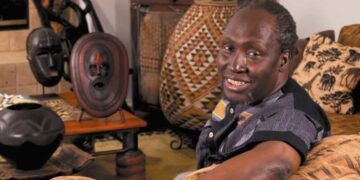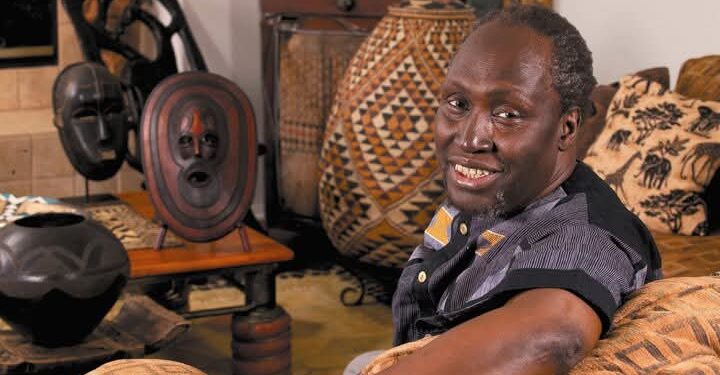Ngũgĩ wa Thiong’o, the iconic Kenyan writer and fearless advocate of African languages, has died aged 87.
Ngũgĩ’s death was confirmed Wednesday by his family, who said he died peacefully with family members by his side.
His life and literary legacy spanned six decades, during which he chronicled Kenya’s transformation from a British colony to an independent nation and inspired generations of African writers.
Born James Thiong’o Ngũgĩ in 1938 in colonial Kenya, Ngũgĩ grew up in the rural town of Limuru in a large, humble family of farmworkers.
His early education at Alliance High School, run by British missionaries, was cut with pain—he once returned home from school to find his village destroyed and his family imprisoned in colonial detention camps during the Mau Mau uprising.
The uprising, which shook Kenya from 1952 to 1960, had a profound impact on Ngũgĩ. His deaf brother Gitogo was fatally shot in the back by a British soldier, a tragedy that would later haunt his writing.
Ngũgĩ’s academic journey took him to Uganda’s Makerere University in 1959, where he shared his first novel manuscript with Nigerian literary giant Chinua Achebe. Achebe forwarded it to a publisher in the UK, leading to the release of Weep Not, Child in 1964—the first major novel in English by an East African.
Ngũgĩ quickly followed with The River Between and A Grain of Wheat, earning recognition as one of Africa’s most important contemporary voices.
But 1977 marked a turning point. Ngũgĩ publicly rejected his colonial name and English as his literary medium, adopting his Kikuyu name and writing solely in his native tongue. His novel Petals of Blood, published that year, fiercely criticized Kenya’s post-independence elite, accusing them of betraying the common people.
He also co-wrote the politically charged Kikuyu play Ngaahika Ndeenda (I Will Marry When I Want), which so provoked the government of President Jomo Kenyatta that Ngũgĩ was jailed without trial for a year. While imprisoned, he wrote Devil on the Cross—his first novel in Kikuyu—on toilet paper.
Fearing for his life after learning of an alleged assassination plot, Ngũgĩ went into exile in 1982, living first in the UK and then the US.
Though welcomed back as a hero in 2004 after 22 years, his homecoming was marred by a violent attack that left him and his wife injured. He later returned to the U.S., where he held prestigious teaching positions at Yale, NYU, and the University of California, Irvine.
Beyond fiction, Ngũgĩ was a powerful essayist and theorist. His seminal work Decolonising the Mind challenged African writers to embrace native languages. “What is the difference between a politician who says Africa cannot do without imperialism and the writer who says Africa cannot do without European languages?” he asked.
Ngũgĩ’s career was not without personal controversy. His son, Mukoma wa Ngũgĩ—a writer himself—has publicly accused his father of domestic abuse, allegations Ngũgĩ never addressed.
Despite numerous predictions, Ngũgĩ never received the Nobel Prize for Literature, a fact that disappointed many of his admirers. Yet his influence was undeniable. Nigerian novelist Chimamanda Ngozi Adichie once called him “a guiding light” of African literature.
Ngũgĩ faced numerous health challenges in his later years, including a triple heart bypass in 2019 and a battle with kidney failure.
Diagnosed with prostate cancer in 1995 and given three months to live, he defied the odds and continued writing and lecturing for decades.
He is survived by nine children, four of whom are published authors. As he once remarked with a smile: “My own family has become one of my literary rivals.”
Ngũgĩ wa Thiong’o leaves behind a monumental literary legacy and an unyielding belief that African stories are best told in African languages.











